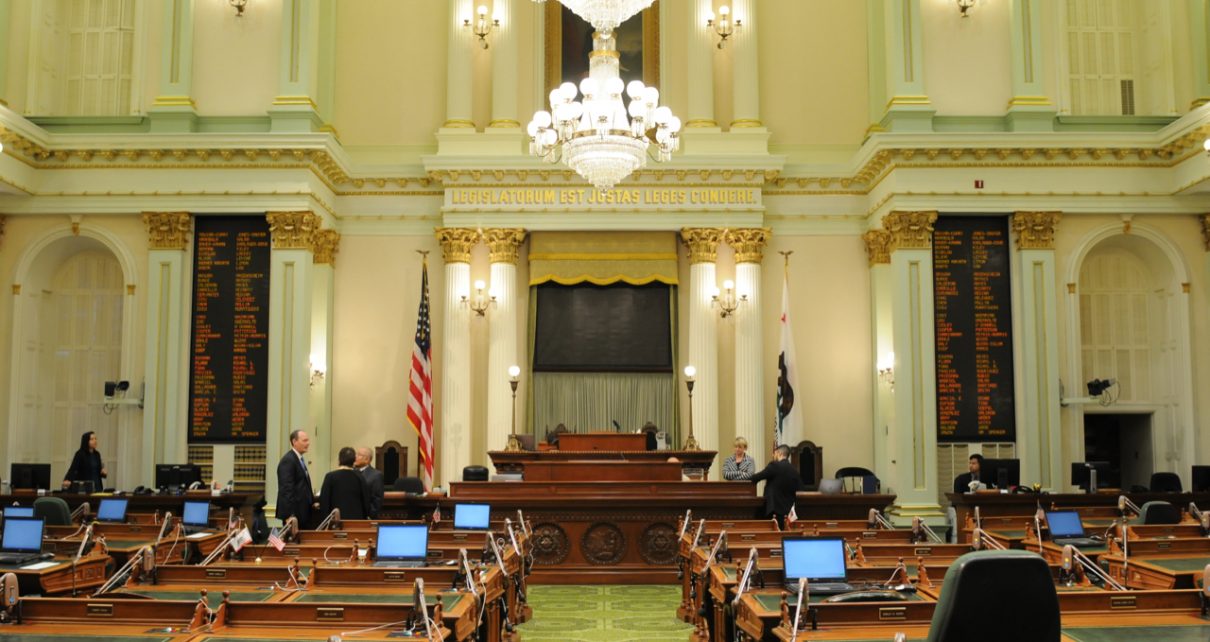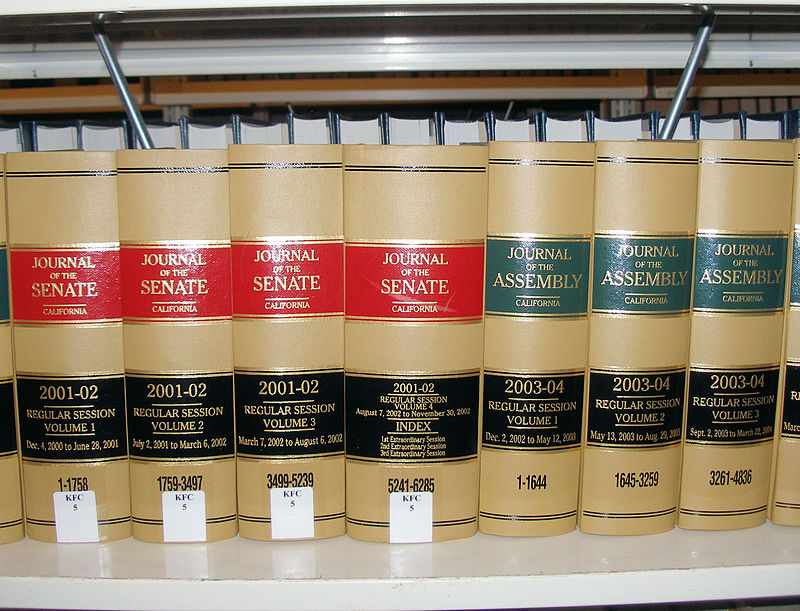
Assembly Rules Makes the Setting and Hearing of Bills Referred to Committee Explicitly Discretionary
One word changed in the rule
By Katy Grimes, February 7, 2019 8:50 pm
Every year the Assembly introduces House Resolution 1 just prior to the January start date of the Legislature. HR 1 establishes the standing rules of the Assembly for the current legislative session.
This year, I stumbled on a rule change which could have huge ramifications.
On December 3, 2018, HR 1 was passed by the Assembly, but on party lines: Ayes 59 Democrats, Noes 20 Republicans. Apparently this happens every year.
Why would rule-making be so contentious? This year, the Assembly made a significant one-word change which could have dangerous implications.
AR 56.1: Makes the setting and hearing of bills referred to committee explicitly discretionary.
This is the language of the 2018 56.1 rule:
2018 56.1. All bills referred to a standing committee pursuant to Rule 51 may be set and heard, if requested by the author, as specified by the Joint Rules. If the analysis of an author’s amendment that is subsequently adopted pursuant to Rule 68 discloses that the amendment makes a substantial substantive change to the original bill as referred by the Committee on Rules, the bill as amended shall either be set and heard by the committee having jurisdiction of the bill as amended or re-referred to the Committee on Rules pursuant to the Assembly Rules.
This is the language of the 2016 56.1 rule.
2016 56.1. All bills referred to a standing committee pursuant to Rule 51 shall be set and heard, if requested by the author, as specified by the Joint Rules. If the analysis of an author’s amendment that is subsequently adopted pursuant to Rule 68 discloses that the amendment makes a substantial substantive change to the original bill as referred by the Committee on Rules, the bill as amended shall either be set and heard by the committee having jurisdiction of the bill as amended or re-referred to the Committee on Rules pursuant to the Assembly Rules.
Does this mean that bills members of the Assembly Rules Committee do not care for will not be sent to committees, rather than allowing the bills a public hearing? On occasion the Rules Committee will shelve bills which are never heard. Does this perhaps formalize that process?
The Overview of the Legislative Process, published by the California Legislature says this about bill procedures:
The bill then goes to the Rules Committee of the house of origin where it is assigned to the appropriate policy committee for its first hearing. Bills are assigned to policy committees according to subject area of the bill. For example, a Senate bill dealing with health care facilities would first be assigned to the Senate Health and Human Services Committee for policy review. Bills that require the expenditure of funds must also be heard in the fiscal committees: Senate Appropriations or Assembly Appropriations. Each house has a number of policy committees and a fiscal committee. Each committee is made up of a specified number of Senators or Assembly Members.
During the committee hearing the author presents the bill to the committee and testimony can be heard in support of or opposition to the bill. The committee then votes by passing the bill, passing the bill as amended, or defeating the bill. Bills can be amended several times. Letters of support or opposition are important and should be mailed to the author and committee members before the bill is scheduled to be heard in committee. It takes a majority vote of the full committee membership for a bill to be passed by the committee.




